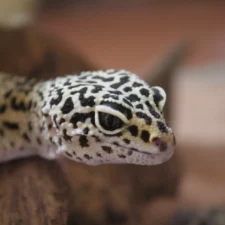Seasons’ Greetings to all of you! At this time of year, we often receive an abundance of adorable photos of our patients. While it’s quite easy to find information on how to care for Fido and Fluffy during this time, reptiles and exotic pets have their own unique set of needs. This time of year can be stressful and potentially hazardous for many of our animal companions, including reptiles and exotics. This article from a local Pendleton, IN veterinarian offers useful tips on how to care for your exotic and reptile pets during the holiday season.
Protect Pets From Holiday Stress
Our animal friends can also get overwhelmed by all of that seasonal hustle and bustle. Most pets are creatures of habit that do best on a steady routine. Any changes to your little buddy’s environment or schedule can distress them. Commotion, flashing decorations, and loud noises can also unsettle your pet. If your aunt is bringing her Great Dane over, your Chinchilla may be terrified of your canine guest. A lizard, on the other hand, may be scared of that singing reindeer on the other side of the room.
Watch for signs of stress or anxiety. These warning signs can vary from pet to pet, but there are a few universal things to look for, such as hiding, trembling, reduced appetite, unusual posture or behavior, and uncharacteristic vocalizations. Ask your Pendleton, IN vet for more information.
Are you hosting a party over the next few weeks? If you’re having a lot of people over, you may want to temporarily move your pet to a quiet back room. If their normal enclosure is too big for you to easily move, just set up a small travel enclosure. This is fine for a few hours, or even overnight, as long as you can provide proper conditions. The biggest thing is to ensure that your pet is comfortable and safe.
Keep A Close Eye On Your Exotic Pet’s Habitat
Many exotics—particularly reptiles–can get sick very fast if their environment gets too cold. That’s a particular concern around the holidays, as weather conditions can fluctuate so much. Make sure that all of your heating and lighting equipment is functioning properly, and pay extra attention to conditions.
You may want to consider adding some extra bedding, especially if your pet is a senior. We’d also advise getting a backup heat source, such as a small generator, in case there is a power outage.
Decorate Carefully If You Have An Exotic Pet
Want to decorate your pet’s habitat? There’s no reason you can’t: you’ll just need to be safe about it. One option is to add a festive seasonal backing to your pet’s tank or habitat. Just put it on the outside. This applies to lights as well. You can also get a cute holiday-themed hide, like a little igloo, or perhaps make a pet tent out of a seasonal material. If you have a pocket pet, such as a Guinea pig or hamster, you can make snowmen or snowflake chains out of plain paper. These make great projects for kids!
Be careful when letting your little buddy out! Many popular holiday decorations are dangerous to our animal friends. Anything small or sharp is a concern. That includes things like small figurines, light strings, ornaments, tinsel, the plastic berries on fake plants, ribbons, ornament hooks … the list goes on and on.
Seasonal plants are also concerning. Many popular ones, such as mistletoe, holly, and ivy, are toxic to our animal buddies. Keep in mind that even non-toxic plants can become toxic if they are treated with chemicals, such as pesticides or fungicides, or are decorated with small items.
Christmas trees are also unsafe for many pets. Pine needles are sharp enough to cause injuries. This is particularly concerning if you have a pet that may want to perch in the tree, like a bird or sugar glider. Many lizards will also climb trees if given the chance. That sweet, sticky sap can also be an irritant, and definitely isn’t safe to ingest. If you have a real tree, the water bowl is another hazard: the water may contain leached traces of chemicals, such as fire retardants. You’ll also need to be cautious with small decorations, such as string lights, ornament hooks, and fragile ornaments.
Boarding Or Pet Sitting: What’s Best For Exotic Pets?
Are you headed home for the holidays? Traveling can get a bit tricky for people with reptiles or exotics. We’d usually recommend having someone care for your pet in your home: this is usually a lot easier than bringing them somewhere. Your animal companion will be cared for by an experienced professional, and will be able to stay on their normal schedule. If you can’t find anyone willing to stop over and check on your pet, look into professional reptile sitter services.
In some cases, you may be able to bring your animal companion to the pet sitter’s house. This may be a good option if you know someone who’s experienced with your type of pet, especially if they can’t come to you. You’ll have to get everything set up properly, but the petsitter will only need to provide their ward with food and water, and of course, do some basic cleaning.
The type of animal you have is also a factor. Many reptiles are quite low maintenance: some snakes don’t even eat every day. Other animals need quite a bit of daily care and attention.
You may find that modern technology is helpful here.
- Have your heating and lighting equipment and thermostats set on a timer. With some newer equipment, you may be able to manage and/or monitor these through an app on your smartphone.
- Have a smoke detector set up. Many of these can also be hooked up to apps.
- Install a webcam to provide a live feed of your pet.
- Here are some tips for helping things go smoothly with a pet sitter:
- Leave extra bulbs for heating/lighting gear.
- Provide updated contact information. You’ll also want to make sure the sitter has the numbers for your Pendleton, IN veterinarian and an emergency clinic.
- Fill a water bottle for misting, and put the misting schedule on or near it.
- If your pet eats live insects, you may want to prepare a separate enclosure for the critters. Don’t add extra live bugs to your pet’s tank: insects can bite and injure reptiles.
- Offer any specific instructions in writing.
- Provide basic information. It’s probably unreasonable to expect a pet sitter to do a lot of heavy reading, but a small beginners’ care book or a first-aid care sheet isn’t bad to have on hand.
- Prepare pre-made meals, and divide them into sealed plastic bags, labeled with the dates and mealtimes.
Should You Travel With Exotics?
If you’re going on a short car trip—such as going over the river and through the woods to Grandma’s–you may be able to bring your pet with you.
You’ll need a secure travel case. Small dog or cat carriers will work just fine for some animals. You can also use a plastic storage container with air holes, or perhaps a small tank or aquarium.
Pack carefully. Your pet will need food, bedding, a first-aid kit, treats, and any supplements or medicine they take. We’d advise adding a bit extra of everything, in case of delays. Reptiles will need heating or lighting equipment, while pocket pets and birds may need toys and chew toys.
When preparing your pet for travel, make sure nothing can fall over onto them. Also, put the carrier in a secure spot, so it won’t fall over or move if you take a sharp corner. (The floor behind the passenger seat is a good spot.)
You’ll also need to keep your pet warm on the trip. Heat packs, microwaved rice socks, hot water bottles, or even regular water bottles with hot water in them can all work for this. You’ll want to put these around the outside walls of the tank, so they don’t fall over on top of your pet, as this could injure them. Finally, have the vehicle nice and warm before bringing your pet out.
All of us here at Pendleton Veterinary Clinic, your Pendleton, IN animal hospital, wish you a wonderful holiday season. Please reach out to us for all of your pet’s veterinary care needs.








